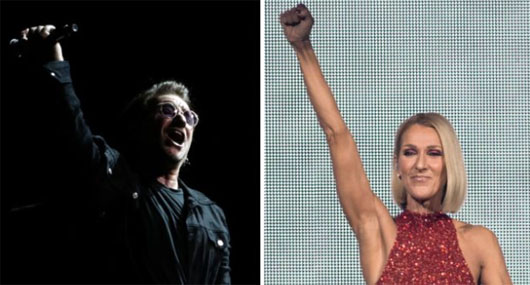Special to WorldTribune.com
It’s one of those rites of late Spring when members of the UN’s General Assembly come together to choose five new non-permanent members of the fifteen-member Security Council. But what’s usually a spirited but pro-forma election of candidates, this year was carried out in the shadow of the COVID-19 pandemic and in the awkward spirit of social distancing.
Diplomats from the 193-member states entered the cavernous but near-empty General Assembly hall to vote in a complicated phased time-slot fashion. This marked the first time in more than three months when delegates visited the still-shut United Nations headquarters.

Political lobbying and jockeying for seats on the Security Council remains an annual ritual;
Countries select candidates from regional groups years ahead, and then begin the marathon process to present their case and country presumably best suited for the two-year Council tenure.
Earlier this year, when election cajoling was beginning to reach its crescendo, the pandemic hit, shutting down the UN and sidetracking the political momentum. Yet online campaigns continued, but the time honored diplomatic glad handing, receptions and schmoozing among the contenders was largely neutralized by the cruel rules of social distancing.
So here’s the outcome selecting five of the ten rotating countries on the Council who will join the permanent veto holding members Britain, China, France, Russia and the United States.
West European and Others group. In a fiercely challenged contest, three countries competed for two seats; Ireland, Norway and Canada. Norway, a clear favorite won handily, especially given its humanitarian and peacekeeping credentials.
The real contest emerged between Ireland and Canada, both of whom spent considerable sums on lobbying. Ireland sponsored a Bono U 2 concert last year while Canada flew in Celine Dion for an electoral soiree. Both countries wined and dined delegates for the coveted Council seat. But this was Canada’s seat to lose (as it did a decade ago); Canada lost again.
Ireland ran a better campaign (online too) stressing its empathy for all things global. Despite being a smaller financial donor to the UN system than Canada, the Republic of Ireland played its traditional peacekeeping cards; currently Ireland has 466 men and women in blue helmet operations. Equally Ireland was strongly backed by the European Union.
Back in the day, Canada’s strong suit was peacekeeping too along with its massive and generous
Development assistance. Though 125,000 Canadians served in peacekeeping from the earliest missions, in recent years the commitment sadly appears to have dimmed; currently only 34 Canadians serve in the UN multifaceted blue helmeted missions.
By losing again, Canada foregoes the chance to be back on the Council after a twenty-year break, presenting a stinging political slap to Prime Minister Justin Trudeau’s woke Liberal government.
As Canada’s National Post opined editorially, “Trudeau has spent millions of dollars, pledged millions more in aid, strained relations with some of our closest allies” and courted dictators
in a failed bid to get the two-year term on the Security Council.
African group. Here was the other significant showdown when the voting went into a second day ballot; Kenya faced off Djibouti. Kenya won with a 129 majority to 62. Kenya represented English speaking African states while Djibouti, a former French colony, was supported by the Francophonie. China supported Djibouti’s case as the small but strategic state at the mouth the Red Sea hosts a Chinese military base. Beijing equally maintains close ties to Kenya.
Asian Group. India was the unopposed candidate and thus won the Council seat handily. India replaces Indonesia.
Latin American Group. Mexico was equally unopposed and won, replacing the Dominican Republic.
Realistically what is the effect on the Council’s dynamic starting in 2021 and moreover what does this mean for U.S. policy?
Among the European group Norway and Ireland replace Germany and Belgium. While both countries have been largely supportive of U.S. policy, Norway and Ireland, shall not likely change any balance.
India’s return to the Council (it’s been a member on 8 occasions) replacing Indonesia, shall noticeably move the needle towards the U.S. if only for India’s deteriorating relations with China. Despite India’s closer political friendship with Washington, don’t assume that New Delhi will rush to overtly support American policy. Nonetheless it’s a clear Plus.
Kenya replaces South Africa basically even while Mexico’s ascent replacing the Dominican Republic offers a slight positive to the U.S.
Moving forward when the new members assume their places in January, they will face a world shaped by COVID-19 and its bitter aftermath.
John J. Metzler is a United Nations correspondent covering diplomatic and defense issues. He is the author of Divided Dynamism the Diplomacy of Separated Nations: Germany, Korea, China (2014). [See pre-2011 Archives]

 By
By